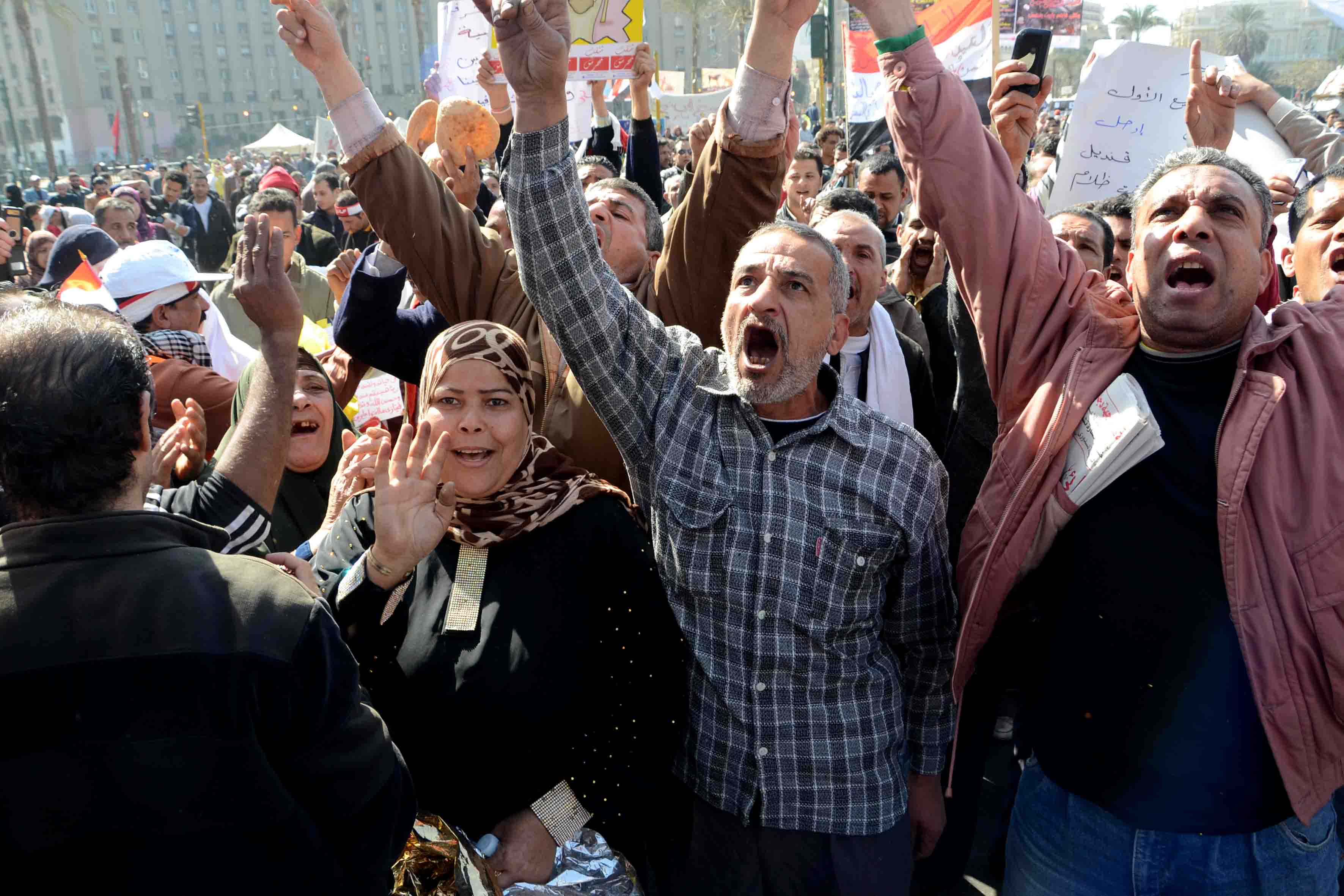CAIRO: The depth of reformers disappointment over Egypt s would-be democratic Spring might be best seen in judge Hesham El-Bastawisi.
When the president announced a year ago his drive for greater democracy, the deputy head of the country s top appeals court felt hope. Now he faces possible interrogation by the police for trying to blow the whistle on voter fraud.
Anyone who talks about real reform becomes an accused defendant, El-Bastawisi told The Associated Press. People are losing any trust in the seriousness of reform talk, and this is really dangerous. I m afraid that would lead to violence.
The mournful tone is a sharp change from the cautious optimism sparked a year ago Sunday when President Hosni Mubarak, under domestic and international pressure, surprised the country by saying he would change the constitution to allow the first multi-candidate presidential elections in Egypt, a top U.S. ally.
The amendments were passed, the election was held in September and Mubarak won over 10 competitors. A result even the most hopeful reformer didn t expect and parliamentary elections soon followed. Mubarak promised more democratic reform would follow.
But the government has been taking one step forward, two steps back, said Hala Mustafa, a pro-reform member of influential policy making committee of the ruling National Democratic Party (NDP), headed by Mubarak.
A string of setbacks has all but wrecked any faith reformers had that the government is serious about change.
Ayman Nour, the candidate who finished second to Mubarak in the presidential vote, was sentenced to five years in prison on forgery charges that he says were trumped up against him to eliminate him from politics.
The parliamentary elections were marred by widespread violence, much of it by police and government supporters who tried to prevent opposition supporters from reaching the polls.
This month, the government postponed elections for local councils for two years, apparently to avert a strong showing by the opposition Muslim Brotherhood, which scored large gains in the parliament elections.
And then there is El-Bastawisi. He and two other pro-reform judges came forward after the parliamentary vote and announced they had evidence of vote fraud. Instead of investigating the fraud, state security told the three judges they were wanted for interrogation – a possible step toward prosecution.
The United States first pressed for reform, then seemed to be giving Mubarak room to make change at his own pace, has grown sharply critical and has shown its displeasure by putting off negotiations for a landmark free-trade agreement.
These are all indications of retreat … In the reform process, renowned columnist Salama Ahmed Salama said. It s not only things are going very slowly, there is kind of liquidation of all democratic stirrings, erasing the democratic Spring that we had started to have.
The game is over. The regime has shot a bullet into reform, the independent daily Sout Al-Umma said in a front page headline on Sunday to mark the anniversary of the Mubarak announcement.
Next to it was a manipulated montage of top ruling party officials brandishing guns, including Mubarak s son, Gamal, the deputy head of the party who has long depicted himself as a reformer.
Hosni Mubarak s Feb. 26 announcement of reform came amid an unprecedented wave of street protests critical of the 77-year-old president s grip on power since 1981.
An informal movement, Kefaya (Enough) launched the demonstrations in late 2004. While nowhere near the scale of popular protests in Lebanon at about the same time, which numbered in the hundreds of thousands, the protests broke the taboo against speaking out against Mubarak and for the first time raised the demand that he leave power.
The outspokenness appears to be the most lasting gain from the past year. Independent newspapers continue their vocal criticism of the government.
The culture of fear has been cracked, said Mohammed El-Sayed Said, political analyst and member of the Kefaya movement. Many people are talking now, but few are taking any actions.
The worst thing that happened last year is that the concept of (Mubarak s) eternal rule is reinforced, he said.
On the political front, the main winners seem to be the Muslim Brotherhood, the banned fundamentalist movement that despite election day violence won 88 seats in the 454-member parliament. The ruling NDP won only 35 percent of the seats, but managed to maintain a 311-member majority by incorporating independent candidates who won seats.
With secular parties weakened and street protests long waning away, Kefaya spokesman Abdel Halim Qandil said judges like El-Bastawisi are the best hope for reform. A year ago we had hope, El-Bastawisi said. But there is no reform taking place at all.
Democratic change has to be a nation s decision. If the people decide to, they will get it, he said. We remain ready to sacrifice everything to bring real reform.
He said he is waiting to see if state security will push its threat to interrogate him or will back down.
But even if it backs down, he said, a showdown could still happen because we re not about to give up on our demands … They don t appear ready to give in on them. AP


